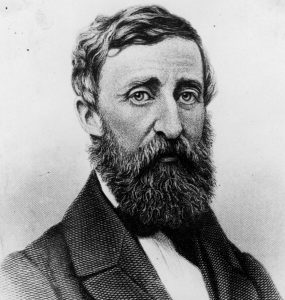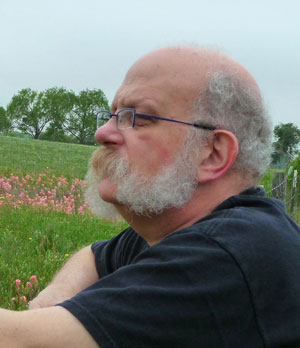Observing and Journaling- a Way to Feed your Soul
By JASMINA WELLINGHOFF, Editor —
The famed 19th century naturalist/philosopher, Henry David Thoreau filled his voluminous journals with his observations of nature and his thoughts on how nature benefits and teaches human beings. In one entry, he wrote: “Must be out-of-doors to get experience of wholesome reality as a ballast to thought and sentiment. Health requires this relaxation, this aimless life, this life in the present…. I keep out-of-doors for the sake of the mineral, vegetable and animal in me.”

In other entries he describes what he sees on his nature walks, often in eloquent detail, focusing on dew on the grass, the trees growing “without forethought, regardless of the circumstances,” and “every leaf and twig” being covered “with a sparkling ice armor.”
Nature was clearly his refuge, inspiration, teacher and healer.
In this time of COVID, uncertainty and fear, Gemini Ink and poet/teacher, Jim LaVilla-Havelin have wisely decided to offer a special workshop for writers, and others who would like to lean from Thoreau’s example. Named The Thoreau Project: Journaling as a Function of Observation, the workshop will encourage observation, multi-sensory reception, fieldwork and journaling.
“There are so many things that Thoreau can teach us through his journaling, that I thought it would be useful to people living through this time,” said LaVilla-Havelin. “That’s where the idea came from.”
As a member of the environmentalist poetry group, Stone in the Stream, LaVilla-Havelin has organized and enjoyed many writing-in-nature sessions. “The whole premise is that directed work out in nature, based on observation – and I don’t mean just visual – is a way of feeding one’s practice as a writer and feeding one’s soul as a human,” explained the veteran teacher. “Thoreau is the most multi-sensory writer. He approaches the worlds with all his senses. It’s a very good lesson for a writer and for being aware of the world.”

During the 6-session poetry workshop, participants will be expected to do the field work on their own, in parks, in their backyards or in nature areas. Prompts will be offered to help with focus, selection, description, “corner of the eye” impressions and engagement of other senses. Then in class – via Zoom – students will have a chance to share their journal writings and receive feedback from the teacher and each other.
Though Thoreau’s name is in the workshop’s name, other environmentalist writers will be also discussed such as Mary Oliver and Wendell Berry.
“Thoreau may be difficult to approach for certain people,” admits LaVilla-Havelin. “He’s cranky and craggy, and as a transcendentalist, he is not exactly in fashion philosophically, but all of that notwithstanding, his journal is a remarkable record of daily practice in understanding the world and one’s place in the world.”
The author of five poetry collection, LaVilla-Havelin is the coordinator of National Poetry Month in San Antonio, and served as poetry editor for the Express-News and the Houston Chronicle. He is also being honored by Gemini Ink this Friday for his tireless teaching and advocacy work.
Workshop participants are required to read The Journal: Henry David Thoreau 1837-1861, published by New York Review of Books Classics.
———————————————————————————————————
The 6-session Zoom workshop starts Oct. 17 and continues Saturdays Oct.17 & 31; Nov. 14 &28; Dec. 12 & Jan.2; 10 a.m. to 12 p.m. Class limit: 12 people; Cost $75 for students, $120 for Gemini Ink members and $140 for nonmembers. To register: www.bit.ly/ThoreauProject; email: joshua@geminiink.org or call 210-734-9673
